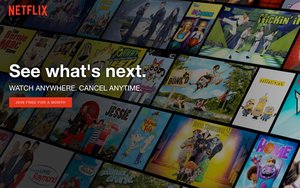Advertising Absent From Most OTT Services
- by Wayne Friedman , July 22, 2016
 The dominant business formula for over-the-top services is non-advertising, subscription fee services.
The dominant business formula for over-the-top services is non-advertising, subscription fee services. Some 55% of current OTT services don’t have advertising as part of their business model, selling to consumers just on a fee-only basis, according to Parks Associates. Netflix, Amazon, HBO Now, and Hulu’s non-advertising option, are major factors contributing to this result.
Advertising-based OTT services -- such as CBS All Access -- comprise an estimated 10% to 15% of the entire OTT market. Around the same share levels exist for other OTT categories -- subscription/transactional OTT; transactional OTT, and “free” video services.
At the end of 2015, Parks says about 20% of U.S. broadband homes had cancelled at least one OTT video service during the previous 12 months.
Growing levels of password sharing with OTT services is a problem for companies.
Recently, a U.S. Court of Appeals ruled that sharing passwords without authorization is a now a crime under the U.S. Computer Fraud and Abuse Act. Parks estimates there was revenue losses of more than $500 million in 2015 from password sharing.
advertisement
advertisement



That is mostly because the technology to dynamically auto assemble trafficked advertising is available now (through Equilibrium's patented Ad-per-view with system - auto ), but people are afraid of complete end-to-end content creation and delivery, resulting in a ton of wasted inventory. OTT to all players requires content transformation if you don't know the inevitable player.
On a micro level, OTT content via OTT apps (on Roku, Apple TV, Amazon Fire) to niche markets/industries, in our case, tourism and hospitality, advertising, or sponsored/paid content placement is the key element. This is growing in a similar manner to specialized free apps in the iPhone/iTunes area. OTT appears to have and is growing numerous models based on target audiences, specialized (live streaming and on demand) content, and targeted delivery.